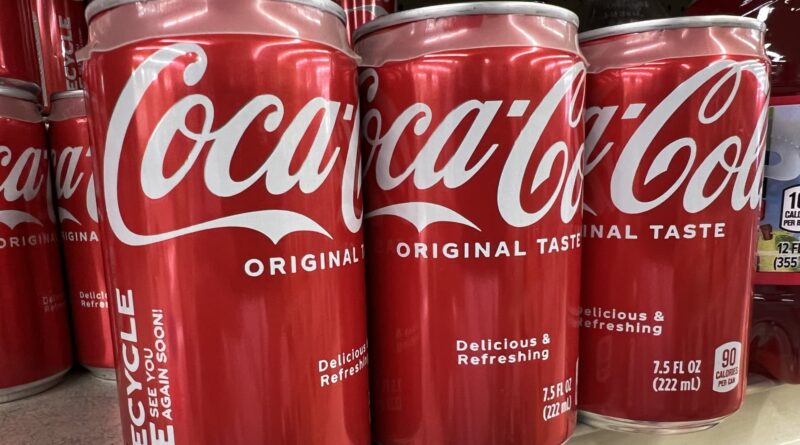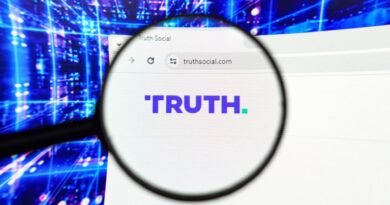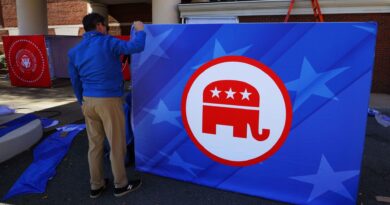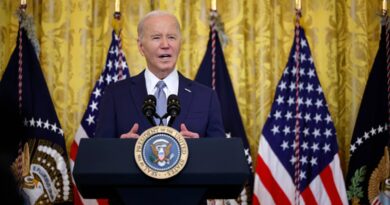Sen. Elizabeth Warren and Rep. Madeleine Dean demand meals and beverage CEOs put a cease to ‘shrinkflation’
Two Democratic lawmakers are demanding that a number of the largest meals and beverage corporations cease partaking in “shrinkflation” — the apply of decreasing product sizes whereas charging costs which can be the identical or greater.
In pointed letters, Sen. Elizabeth Warren of Massachusetts and Rep. Madeleine Dean of Pennsylvania accused Normal Mills, Coca-Cola and PepsiCo of partaking in a “sample of profiteering” by shrinkflation and by “dodging taxes.” The letters, despatched Sunday afternoon and shared first with NBC Information, cite ways the businesses have used lately to extend their backside traces.
Normal Mills, for instance, lowered the sizes of many cereal packing containers in 2021, “together with lowering ‘Household Dimension’ Cocoa Puffs from 19.3 ounces to 18.1 ounces whereas charging the identical value,” the letter to Normal Mills Chairman and CEO Jeff Harmening learn. It added: “Then, from mid-2021 to mid-2022, Normal Mills hiked costs 5 occasions, and in 2023, your Group President of North American Retail bragged that the corporate was ‘getting sensible about how we have a look at pricing.'”
Coca-Cola has downsized its merchandise, too, stated the letter to Chairman and CEO James Quincey, and it’s “promoting much less soda for a similar value.” The identical with PepsiCo, which “changed its 32 oz Gatorade bottle with a 28 oz bottle for a similar value.”
“Shrinking the scale of a product with the intention to gouge shoppers on the value per ounce just isn’t innovation, it’s exploitation,” the letter to PepsiCo head Ramon Laguarta learn.
Spokespeople for Normal Mills, Coca-Cola and PepsiCo didn’t instantly reply to requests for remark. PepsiCo has denied altering bottle sizes for revenue; a spokesperson told CNBC in July that the 28-fluid-ounce bottle of Gatorade has existed for over a decade and that promoting it extra broadly was a part of the corporate’s long-term technique, not a response to the present financial setting. Coca-Cola has defined its smaller bottles as a way to offer lower price points to budget-conscious shoppers.
Regardless, Warren and Dean additionally accused the businesses of funding lobbying for Republican-led corporate tax breaks in 2017 that promised a trickle-down impact however as a substitute “incentivized value gouging” as a result of “firms raised costs to pad their earnings, figuring out that decrease company tax cuts meant they’d get extra again on every greenback of value improve,” all three letters stated.
Citing a February evaluation from the nonprofit Institute on Taxation and Economic Policy, the letter to Normal Mills stated that within the first 5 years following the 2017 tax cuts, Normal Mills paid a median efficient tax charge of 14.8% on its $12 billion in earnings — a decrease tax charge than many working people pay. Coca-Cola paid 13.5% in federal earnings taxes on its $13.4 billion in earnings for a similar time-frame, the letter to its CEO stated, whereas PepsiCo made $22.4 billion in earnings throughout these years and paid a median efficient tax charge of 15%.
“Folks have seen that their field of Cheerios and bag of Doritos are smaller, however costs are greater — and on the similar time these large firms are paying decrease tax charges than the common American,” Warren stated in an announcement to NBC Information. “We won’t allow them to get away with this value gouging and tax dodging. It is simply plain mistaken, and we’re preventing again.”
Shrinking shopper items prolong past soda and cereal. MousePrint.org, an internet site that tracks retail merchandise, has been highlighting gadgets which have gone down in size but not in price, together with a pack of razors that after contained 36 razors and now could be right down to 30 and a bag of almonds that went from 30 ounces to 25.
President Joe Biden has talked about shrinkflation quite a few occasions, declaring it a “rip-off” in a video he posted to X. In his State of the Union tackle this 12 months, he urged Congress to go a bill that would crack down on shrinkflation by regulating it as unfair or misleading.
Even Cookie Monster has opined on downsized merchandise, lamenting on X in March: “Me hate shrinkflation! Me cookies are getting smaller.”
However to producers seeking to develop revenue, particularly in occasions of inflation as the prices of packaging supplies and elements rise, decreasing product measurement is commonly seen as a greater transfer than upping costs, stated Nailya Ordabayeva, an affiliate professor of selling on the Boston College Questrom Faculty of Enterprise.
“Last value will increase draw a lot greater backlash than quantity decreases,” she stated. “So, between the 2 evils, the downsizing turns into a most well-liked possibility.”
That having been stated, when buyers discover that they’ve paid the identical quantity for much less, notably if it is one thing they eat usually in contrast with an indulgent merchandise they purchase solely on occasion, “at that time they get upset,” Ordabayeva stated.
However shopper frustration has not stopped shrinkflation. A report in December by Casey’s workplace discovered that family merchandise like bathroom paper and paper towels had been 34.9% dearer per unit than in January 2019, with 10.3% of the value improve as a result of producers’ shrinking the sizes of rolls and packages. In the meantime, snacks resembling Oreos and Doritos had develop into 26.4% dearer since January 2019, with 9.8% of the rise “achieved by giving households fewer chips and cookies for his or her greenback,” the report stated.
Sarah Gallo, senior vp of federal affairs at Client Manufacturers Affiliation, a commerce group that Coca-Cola, PepsiCo and Normal Mills all belong to, defended trade practices to NBC Information.
She cited an inflation report the Federal Reserve Financial institution of San Francisco launched in Might that discovered that “mixture markups over the previous three years will not be uncommon in contrast with earlier financial recoveries, countering the deceptive assaults on the trade.”
“The trade stays centered on offering one of the best merchandise on the best value to shoppers,” she stated in an announcement.
The letters from Warren and Dean requested three items of data: the common value the companies charged per ounce of soda or per ounce of cereal yearly since 2018, how way more in federal taxes they’d have paid had the 2017 Tax Cuts and Jobs Act not been in impact and whether or not firm executives acquired bonuses or different incentives during times of excessive inflation.
Dean stated the letters had been despatched to “ease the wrongful burden” the businesses are imposing on shoppers.
“At the same time as our financial system recovers from the pandemic, individuals are nonetheless hurting from excessive costs on the grocery retailer,'” Dean stated in an announcement to NBC Information. “Charging extra for merchandise, like cereal, whereas decreasing their measurement implies that Individuals are paying extra for much less and large firms are paying lower than their fair proportion in taxes.”





